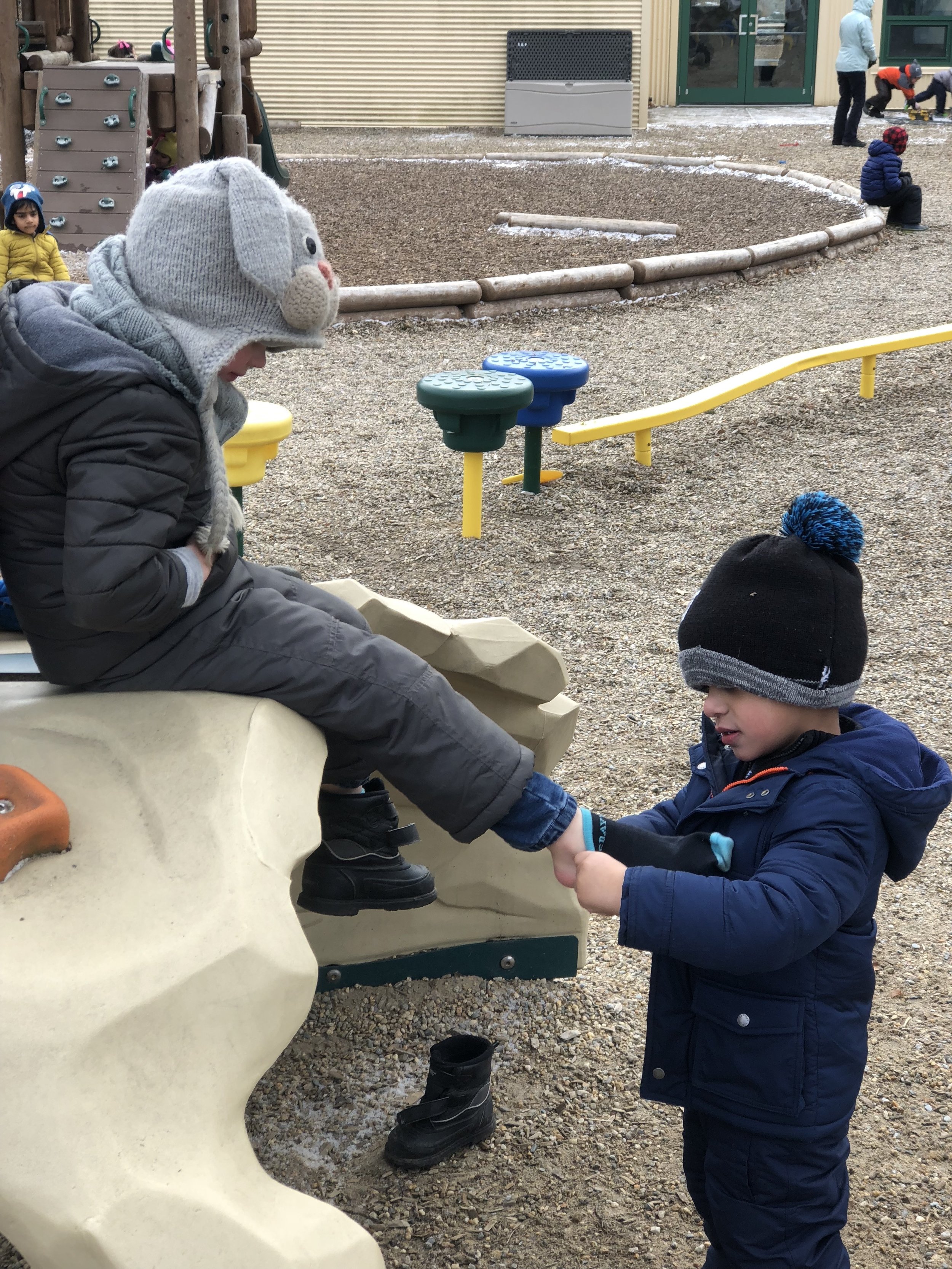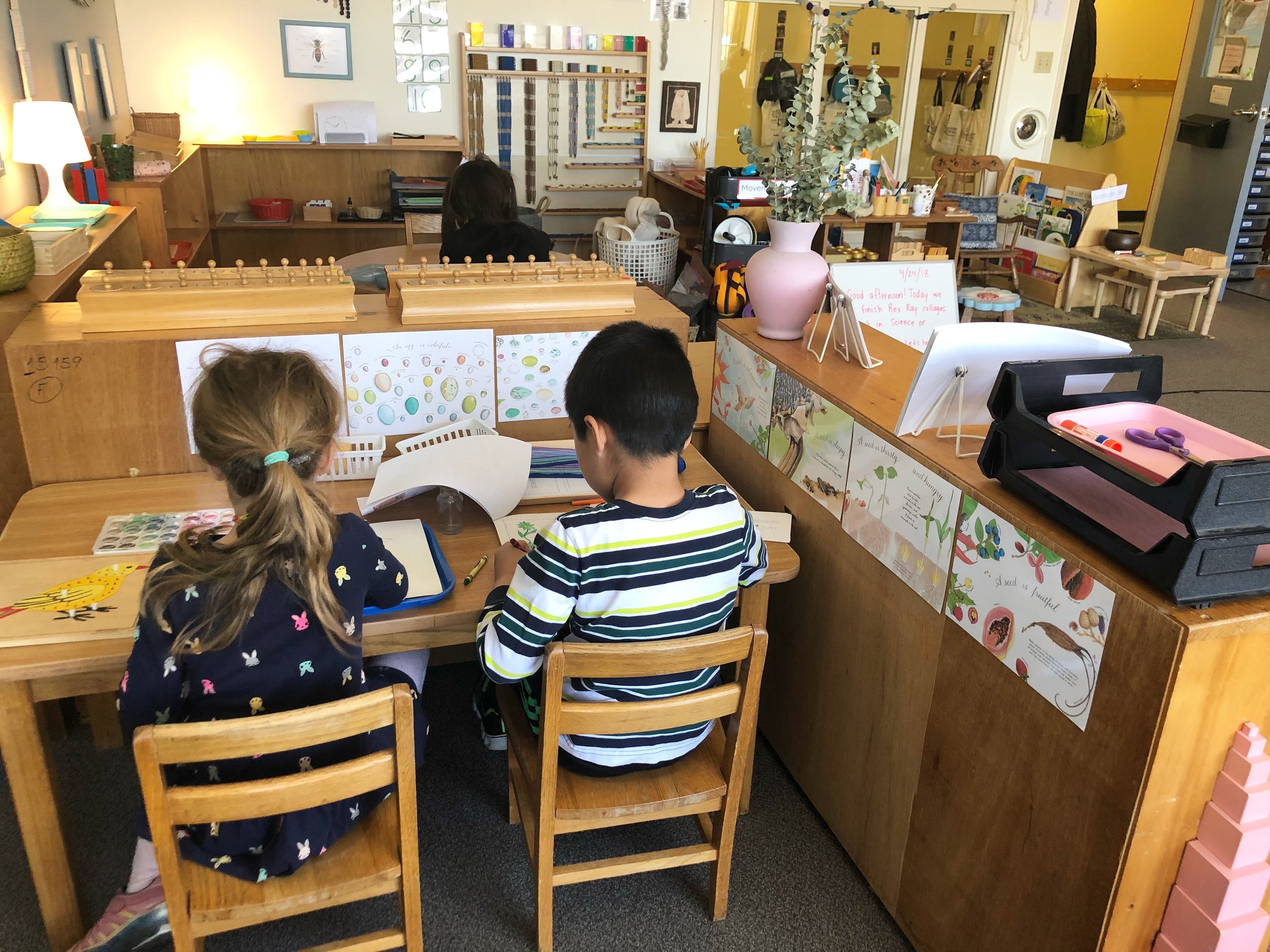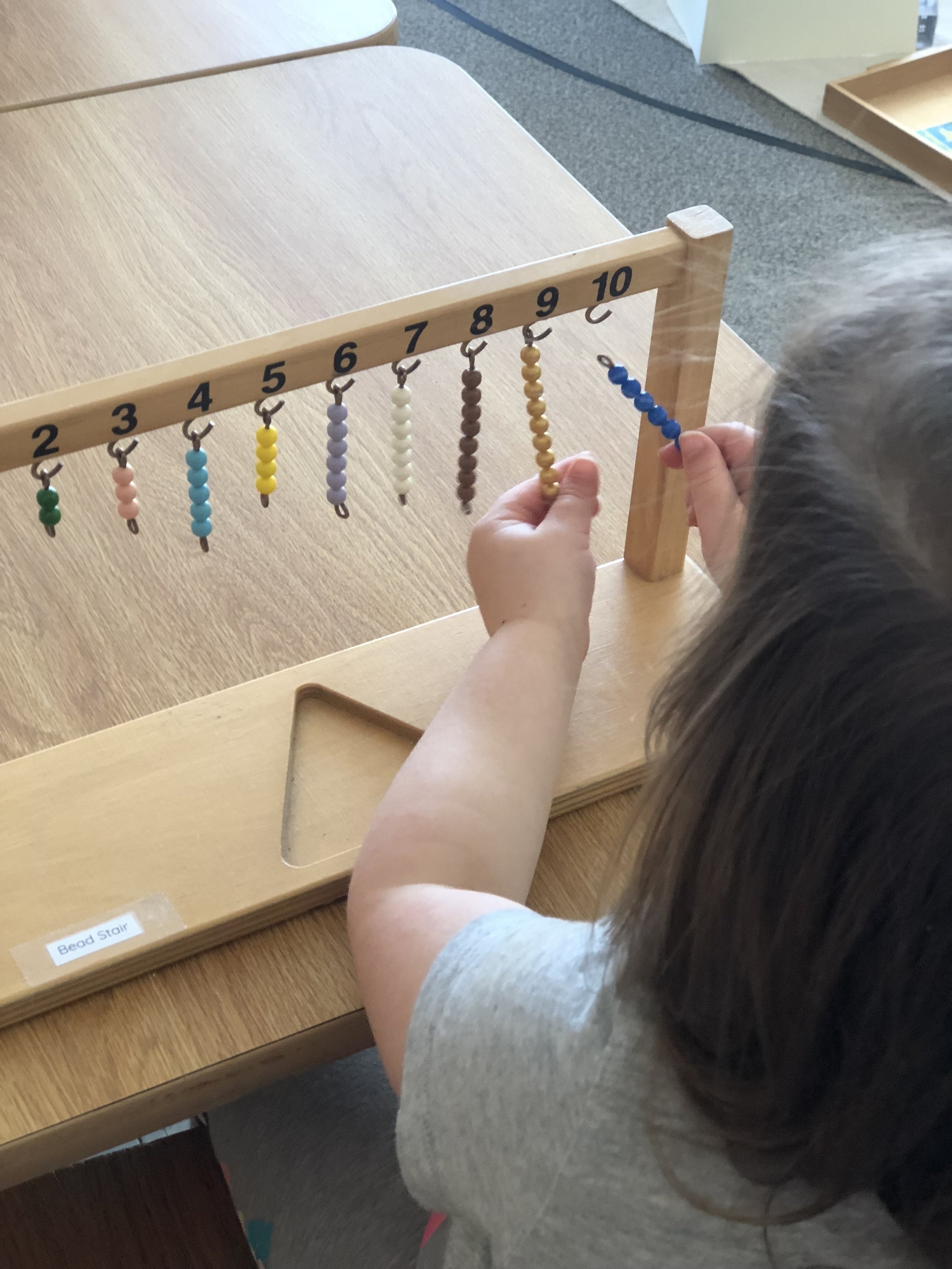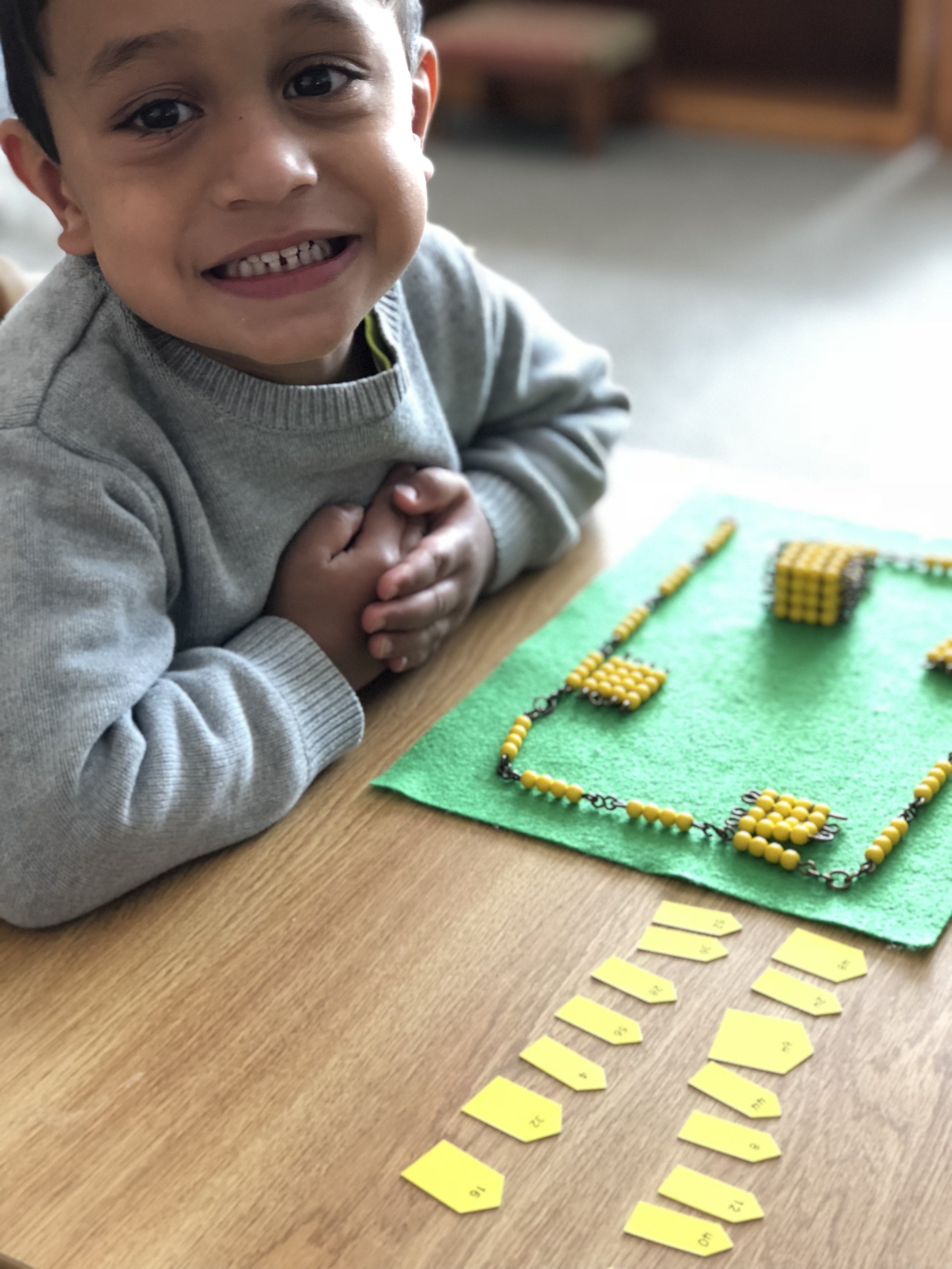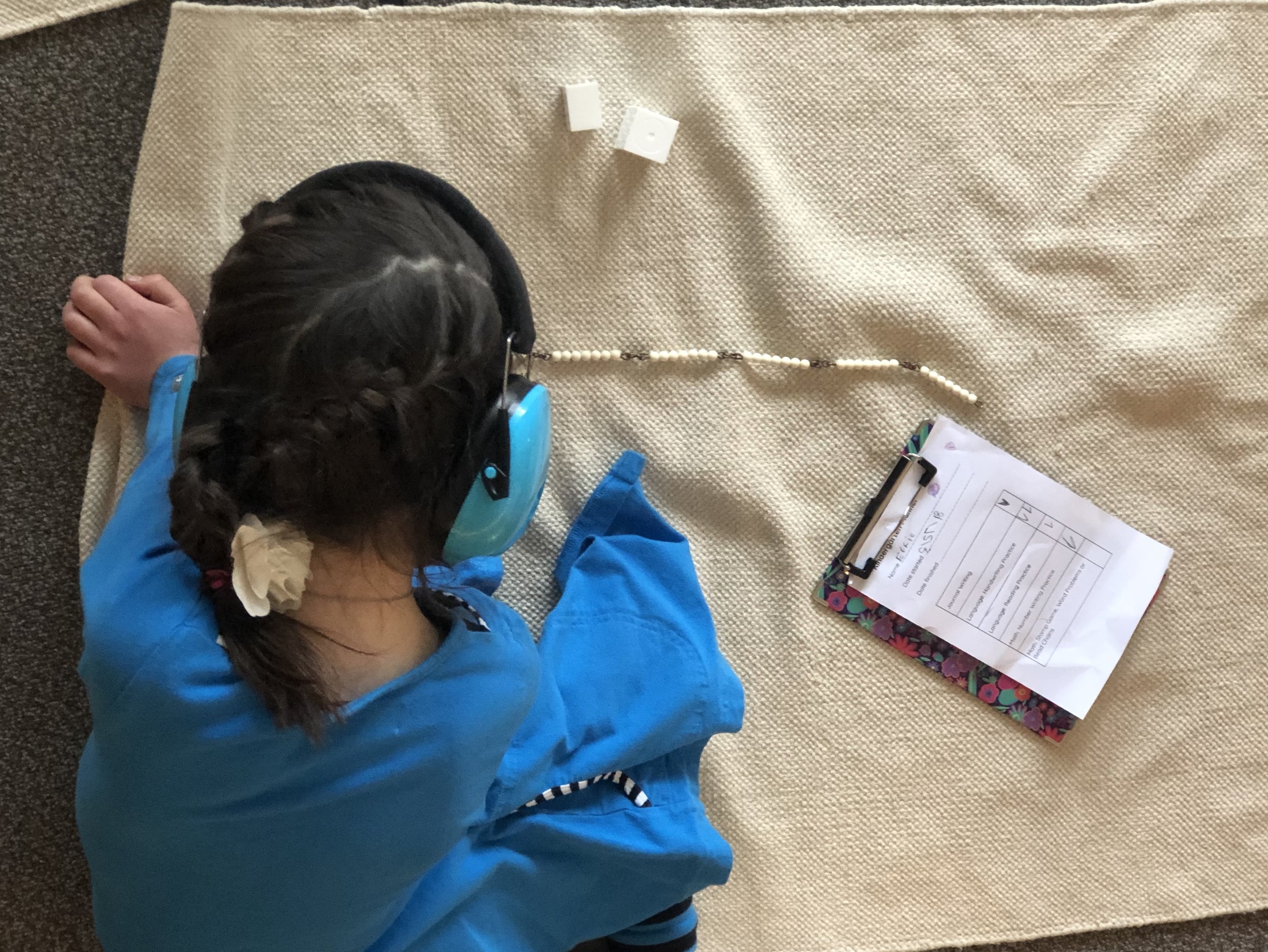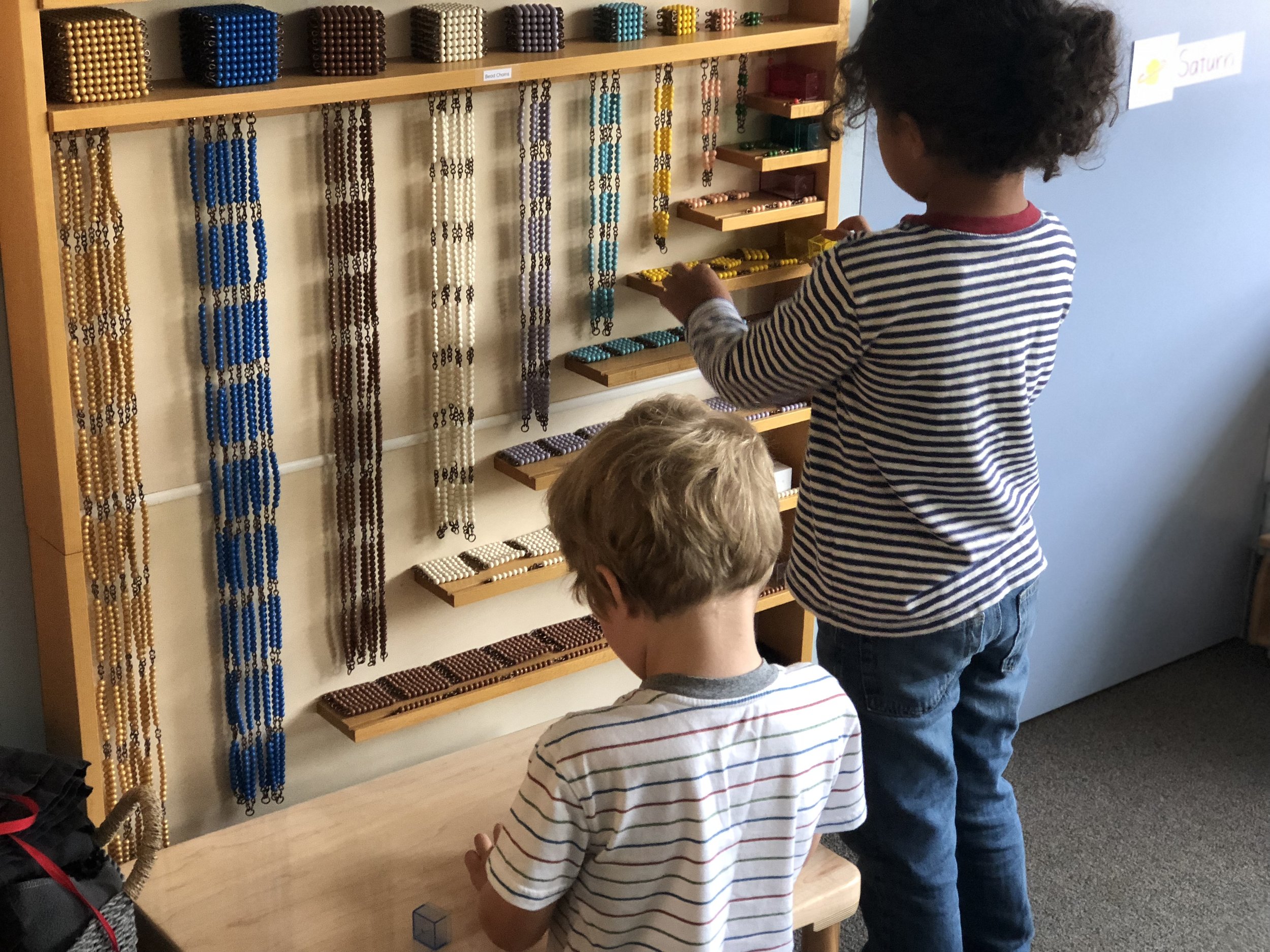Another Year of the Same? What the Three Year Cycle Actually Means
We’ve rounded the corner of the school year now, entering the second half - our students have grown inches over winter break, everyone seems so much older, almost ready for their next step. So many parents are wondering if they should sign up for their town’s public school lottery (they really have a way of scaring you into “getting in” at Kindergarten), or if they should continue on with Montessori and the school they (we hope!) and their child (we know!) love so much.
I’m not going to get into the monetary cost, or the “if I don’t transition them now they won’t have friends”, or the “my kid just wants to take the bus to school!” stuff, I’m just going to cover the things that I know to be true - why Montessori schools put so much emphasis on the three year cycle. Here is a collection of very important, very relevant wonderings of some of my children’s parents in the past decade I’ve been in the classroom. These apply directly to the classroom and are questions I can confidently answer about your child’s Montessori experience.
How does it work? The activities in the classroom are the same year after year - the teacher is the same so I assume their curriculum is the same. Won’t my child be bored? They’ve been doing work with those colored beads since they were three, isn’t it time they moved on to something else? They’ve poured and scooped and sifted and stirred for the past two years, why do they want to do it for another year?
There are surely elements to the Montessori classroom that remain the same year after year, but there is a lot that does not. Teachers change, rotate, think of new ideas in all areas of the room, but especially Practical Life, Science, Geography and Art. Teachers are always coming up with exciting new ways to teach the same idea - so much of your child’s classroom is in the hands of your teacher and her personality. But, going back to the things that remain the same, here is a simple example of how a child benefits from the same thing for three years, The Bead Stair.
A Three Year Old using The Bead Stair: matching written numerals to corresponding quantity, putting a 2 bar with a 3 bar and counting the answer (the first step in learning about addition), making the actual stair - starting with the smallest bar and working down to the largest to make the triangle shape.
A Four Year Old using The Bead Stair: using The Bead Stair to learn the addends of 10, learn the idea of exchanging through games like The Snake Game, which is a way of organizing the beads, holding places and exchanging all numbers that add up to tens for a new golden ten bar, using the squaring chains - being able to count each tiny bead consecutively and labeling numbers with tickets so as to represent a “squared number.”
A Five Year Old using The Bead Stair: perhaps for multiplication - 7x4 would be a white bead bar, 4 times, count up the beads to find the answer. Kindergarteners use multiplication this way to learn what we would traditionally call “times tables.” A five year old will also have moved on the to cubing chains, much like the squaring chains, only they involve higher counting, represent a cubed number and a much larger investment of time and perseverance.
I’m afraid my child’s behavior will regress, I’ve seen them around younger children and they start to act like younger children! My child rises up when they are with children of the same age and they act more mature. Why would I want my 5 year old Kindergartener in a class with three year olds?
Your child is different at school. I know it sounds crazy, but its actually true. We don’t see behavior regression, we see the exact opposite. We see children who want to be role models, be mature and efficient, to be helpers, who strive to get to the next level because they see “the big kids” in the hallway. I would say 9.5 times out of 10 this is true. If this is not the case with your child, your teacher should inform you of this challenge so that you can work together to find the best plan of action.
I know my child knows many of these lessons and will become a role model in the classroom and will be giving lessons to younger children, but that is benefiting someone else’s child, not mine, right?
Parents love the idea of having a confident, capable, independent child, but sometimes we think our child is “there” and just doesn’t need another year to experience that. I would beg to differ. Your child has been watching those third year students for basically their entire academic career. Even if they are already a confident, happy kid, we want to allow them to see that dream through. Studies have shown that when two children are together and one is teaching the other - the child who is benefitting the most from that interaction is the teaching child, not the receiving child. Knowing that you have the power to direct, teach, influence and get your message across clearly to another human does wonders for a person of any age - we want to give that to your child.
You’ve given my child such a good foundation these past two years, I feel like they are ready for public school, they know all they need to know and will be ahead of my town’s program.
This is one of those comments that as a teacher makes you feel really great, but also… we want your child to stay! We are so happy we are giving your child a great foundation, and that, will never change, but we’ve been building their foundation for life.. not for Kindergarten. School doesn’t start at Kindergarten. This is an arbitrary idea that someone along the way made up - school starts the day your child is born. We aren’t giving a foundation for Kindergarten, we are teaching them important things, at their pace, with our encouragement and we will never ask your child to wait or to catch up based on other children’s learning. If your child loves school - that is the greatest gift you can give them. Keeping your child at a place they love, where they feel loved, where they feel challenged and exciting is a gift of life long learning.
Some of our Kindergarten crew bonding in the afternoon.
I know there are many other reasons a family might wonder about where to send their child for Kindergarten, I can’t begin to talk my way through everything, but I felt like these four things come up time and time again, so I wanted to touch on them. Please feel free to comment below if you’re wondering about anything else!
